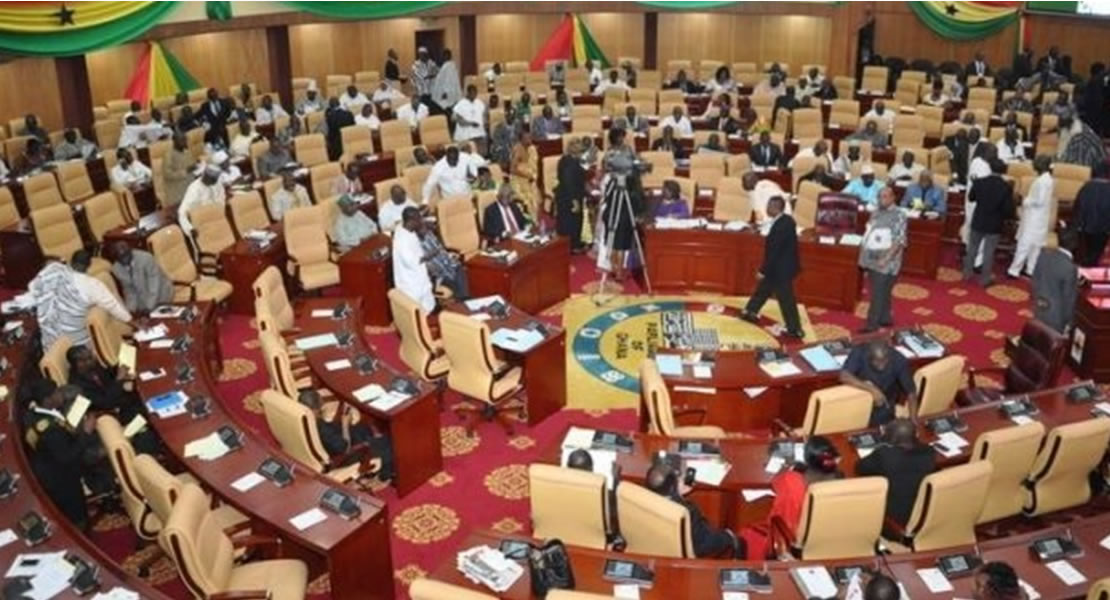
Members of Parliament on Tuesday engaged in a heated debate over a Communication Service Tax (Amendment) bill, 2013 before it could be read the second time.
This is because the minority objected to the urgency of the bill purported by the Finance Committee as well as some issues in the memo which they claimed lacked clarity.
The bill was presented to Parliament and read the first time on June 28, 2013 and referred to the Finance Committee for consideration and report in accordance with article 174(1) of the 1992 constitution and order 169 of the standing orders of Parliament.
The bill seeks to amend some provisions in the communications service tax Act, 2008 (Act 754) to clarify the scope and coverage of the tax and include interconnection services within the tax base. It is divided into eight clauses.
Mr Ato Forson, Deputy Minister for Finance moved the motion for the bill to be read.
Parliament passed the Communication Service Act, 2008 (Act 754) to impose a six per cent charge on communications service usage. Tax was an excise tax intended to raise additional revenue from communication services, provided by mobile operators to their customers.
The rate of 6 per cent was arrived at in order to remove the surging nature of the tax with regards to interconnection services. Some provisions in the Act however, created compliance challenges in the telecommunications companies in respect of the application of the tax to interconnection services.
The proposed amendment therefore seeks to bring clarity to the various provisions so as to improve the administration of the tax.
Dr Anthony Osei Akoto, who was first to raise the objection said the committee should let the house know what the gaps are in the bill and why it was said to be urgent.
Mr Paapa Owusu Ankoma noted that the bill had been there for five years and nothing is stated as to why it was urgent thus members needed to time take look at the bill properly and make the necessary corrections as the memorandum was misleading.
He appealed to members not to accept the bill as urgent so that it could go through the normal process in order to improve upon it.
Mr Fredrick Opare-Ansah, Member for Suhum said in this country no user is charged a levy for use international calls so what levy are placing on users “what sin they committed.”
Mr Joseph Yeleh Chireh, member for Wa West, urged members to support the report and the second reading of the bill adding that it came to the House late.
Mr Alban Sumani Bagbin, Member for Nadowli Kaleo, said there was a challenge with the bill due to certain issues in both the memo and the report which were not clear and needed to be stated clearly before.
He said the bill before the law was draft and a lot of amendments were needed to streamline it.
Dr Dominic Akuritinga Ayine, Deputy Attorney General and member for Bolgatanga East the debate over the bill was a contravention article 106 (13) of the 1992 constitution, saying once it was an urgent bill there was no need to debate it.
Dr Benjamin Kunbuor, Leader of government business and member for Nandom said the memo had set out everything out clear in terms of legislation and added that when the House gets into the subsequent states of the bill the various amendments needed to clarify whatever issues that are claimed to be lacking would be included.
Mr Edward Doe Adjaho, Speaker after listening to all the concerns raised from both minority and majority moved the motion for the bill to be read the second time for the House to begin consideration Wednesday, July 3, 2013.
Other papers were also presented, including, reports of the Finance Committee on Communications service tax (Amendment) Bill, 2013, Value Added Tax (Amendment) bill 2013, Special Import Levy bill 2013, National Fiscal stabilization levy bill, 2013, Customs and excise (Duties and Other Taxes) (Amendment) Bill, 2013.
The Anti-Terrorism amendment) bill, was also read the first time.
GNA